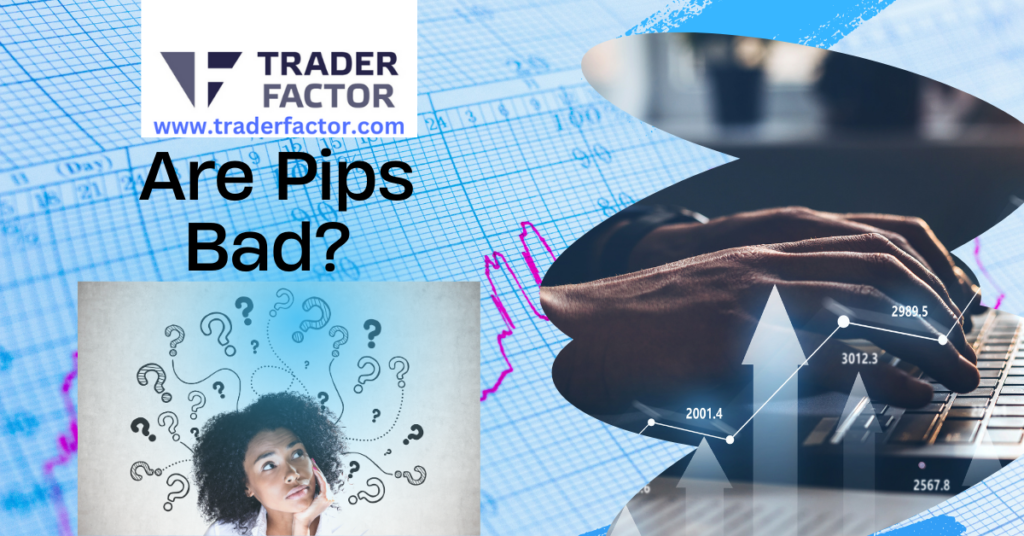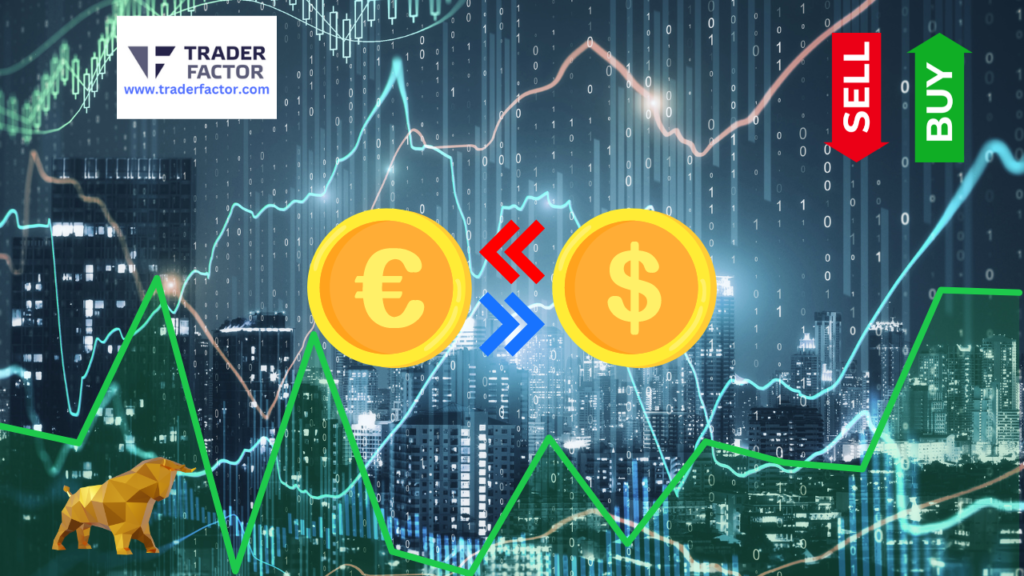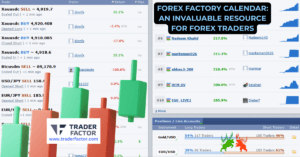Do you want to make smarter trades in the Forex market? If so, it’s important to understand what a pip is and how they affect your profits. A pip is a unit of measurement within the Foreign Exchange (Forex) markets that shows traders and investors the value gained or lost when trading different currency pairs.
This blog post will explain everything you need to know about pips, including where they come from, how to calculate them, and how understanding their role can help improve trading performance.
Keep reading to boost your forex knowledge and make more informed forex investing decisions. Read on.
Table of Contents
ToggleUnderstand the Basics of a Pip in Forex Trading

When it comes to trading, every pip counts! This miniature measurement represents the tiniest change in the value of currency pairs. Depending on its placement, one pip could equal 1, 10, or even 100 points.
Curious for more?
Trading FX involves a lot of jargon, so it’s important to take the time to understand some basic concepts like a pip. A pip is a commonly used unit for measuring differentials in currency prices. Specifically, it’s the differences between the bid and ask price for a particular currency pair.
The size of a pip is determined by the specific currency pair being traded, but it always has the same value regardless of how many lots you are trading. That way, investors can know exactly how much they’ve profited or lost on each trade.
What is a Pipette?
Pipettes in Forex trading, also known as fractional pips, is a term used to represent 0.00001 of a unit of a given currency pair. This small amount makes it easier for traders to take more precise risk management positions and to enjoy greater accuracy when scalping (small short-term trades).

Pipettes (points) allow traders to enter into specific positions that weren’t easily achievable in the past due to limited precision when making trades. The extra numerical values allow for more granular movement in order to hedge against small changes in prices.
Pipettes are available primarily through ECN forex brokers and can be especially useful for intraday traders who prefer high precision when trading at very short-term timescales.
How Does a Pip Affect Your Profits?

Pips can significantly impact your profits or losses in the forex market because they represent the smallest increment by which the value of a currency pair can change.
For example, if you are long (meaning you have bought) a currency pair, a one pip increase in the exchange rate would result in a profit, while a one pip decrease would result in a loss.
Similarly, if you are short (meaning you have sold) a currency pair, a one pip increase in the exchange rate would result in a loss, while a one pip decrease would result in a profit.
The impact of pips on your profits or losses can be calculated by using a pip value calculator. It takes into account the size of your trade, the exchange rate of the currency pair, and the size of the pip.
This will give you the pip’s value in the currency you are trading, which can then be used to calculate your profit or loss.

It is important to note that the value of a pip can vary depending on the currency pair that you are trading and the size of your trade.
For example, a one pip change in the exchange rate of a major currency pair like EUR/USD may have a different value than a one pip change in the exchange rate of a minor or exotic currency pair.
How Are Pips Calculated in Forex Trading?

In forex trading, the value of a pip is usually calculated in the base currency of the currency pair that you are trading.
The base currency is the first currency in the pair, and the quote currency pair is the second currency in the pair and is also known as the counter currency.

When calculating the value of a pip:
- Determine the exchange rate for the currency pair. For example, if the exchange rate ratio for the EUR/USD currency pair is 1.2000, this means that one Euro is worth 1.2000 US dollars.
- Determine the size of your trade. This is the number of units of the base currency that you are buying or selling. For example, if you are buying 10,000 trading units of the base currency, this is known as a “standard lot.”
- Calculate the value of a pip. To do this, you will need to multiply the size of your trade by the exchange rate and the pip value, which is usually 0.0001. For example, if you are trading a standard lot of EUR/USD with an exchange rate of 1.2000, the value of a pip would be calculated as follows:
(10,000 units x 1.2000) x 0.0001 = $1.20
This means that a one pip change in the exchange rate of the EUR/USD currency pair would result in a profit or loss of $1.20, depending on whether you are long (meaning you have bought) or short (meaning you have sold) the currency pair.
The below pip “map” will help help you understand pips better;
It is important to note that the value of a pip can vary depending on the currency pair that you are trading and the size of your trade.
For example, if you are trading a currency pair with a low exchange rate, the value of a pip may be smaller than if you are trading a currency pair with a high exchange rate.

In addition, the value of a pip can be different for different sizes of trades, such as;
- Mini lots
- Micro lots
- Standard lots.
A pip calculator enables you to calculate the value of a pip in different accounts depending on the size of your trade.

What are the Different Types of Forex Pips and their Advantages?
There are several different types of pips that are used in forex trading.
Standard Pips
These are the most commonly used pips in the forex market and are usually measured in the fourth decimal place of an exchange rate.
For example, if the exchange rate for the GBP/USD currency pair is 1.2000, a change of 0.0001 in the exchange rate would be equal to one standard pip.
Mini Pips
Mini pips are similar to standard pips but are measured in the fifth decimal place of an exchange rate. For example, if the exchange rate for the GBP/USD currency pair is 1.20000, a change of 0.00001 in the exchange rate would be equal to one mini pip.
Micro Pips
Micro pips are smaller than mini pips, measured in the sixth decimal place of an exchange rate.
For example, if the exchange rate for the EUR/USD currency pair is 1.200000, a change of 0.000001 in the exchange rate would be equal to one micro pip.
The advantage of using mini or micro pips is that they allow traders to take advantage of the value of each pip move in the forex market.
However, they also carry a higher level of risk, as the value of a mini or micro pip is much smaller than the value of a standard pip.

Take Away
Pips are used to calculate how much profit you’ve made on a trade based on the ‘pip’ or ‘point’ movement of the currency price. Most forex brokers’ trading platforms will automatically calculate your profits and losses into pips.
Hence, you can easily see how much money you’ve made or lost on a trade without making any calculations.
When calculating profit and loss from pips alone, always remember to factor in the spread, as this will be deducted from your total profit (or added to your loss).

CTA
Forex trading is a good way of making profits as long as you understand what it’s all about, starting with knowing how to calculate pips. So, what are you waiting for? Get started today by reading our beginner guides in the Forex Education Section
- Beginners Guides and Tips For Forex Trading
- Read A Beginners Guide To Forex Trading
- Mistakes Most Beginner Forex Traders Make and How To Avoid Them
- A 2023 Beginners Guide To Buying And Selling Currencies
- Can You Make Money Trading Forex In 2022 and 2023: Here Are The Facts
- Popular Forex Trading Terms You Must To Know For 2023 – Traderfactor
Disclaimer:
All information has been prepared by TraderFactor or partners. The information does not contain a record of TraderFactor or partner’s prices or an offer of or solicitation for a transaction in any financial instrument. No representation or warranty is given as to the accuracy or completeness of this information. Any material provided does not have regard to the specific investment objective and financial situation of any person who may read it. Past performance is not a reliable indicator of future performance.
















